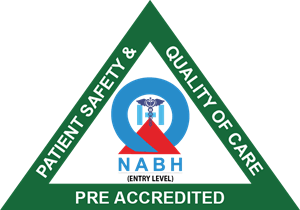- Home
- About
- Specialities
Centers of Excellence
- Facilities
- Procedures
Procedures
- Doctor List
- Health Packages
- Contact


At Bakson Multispecialty Hospital our team of orthopedic surgery experts uses the latest techniques and technology to improve care for patients with musculoskeletal problems. doctors use minimally invasive procedures whenever possible to reduce pain and speed recovery. Before and after surgery, assistance as needed from physician specialists trained in internal medicine, radiology, physical medicine and rehabilitation, and other medical and surgical areas helps speed recovery for our surgical patients.
Knee replacement
The most common reason for knee replacement surgery is to relieve severe pain caused by osteoarthritis. People who need knee replacement surgery usually have problems walking, climbing stairs, and getting in and out of chairs. Some also have knee pain at rest.
Risks
Knee replacement surgery, like any surgery, carries risks. They include:
During the procedure
Knees are kept in a bent position to expose all surfaces of the joint. After making an incision about 6 to 10 inches (15 to 25 centimeters) long, our surgeon moves aside the kneecap and cuts away the damaged joint surfaces.
After preparing the joint surfaces, the surgeon attaches the pieces of the artificial joint. Before closing the incision, the surgeon bends and rotates the knee, testing it to ensure proper function. The surgery lasts about two hours.
After the procedure
Patient is taken to a recovery room for one to two hours. Many people can go home that same day. Medications prescribed by our doctor should help control pain.
Patients are encouraged to move the foot and ankle, which increases blood flow to the leg muscles and helps prevent swelling and blood clots. Patients likely receive blood thinners and wear support hose or compression boots to further protect against swelling and clotting.
Patients are asked to do frequent breathing exercises and gradually increase the activity level. A physical therapist will show one how to exercise the new knee. After one leaves the hospital, patients continue physical therapy at home or at a center.
Exercises are to be done regularly, as instructed. For the best recovery, follow all of the care team’s instructions concerning wound care, diet and exercise.
Results
For most people, knee replacement provides pain relief, improved mobility and a better quality of life. And most knee replacements can be expected to last more than 15 years.
Three to six weeks after surgery, one generally can resume most daily activities, such as shopping and light housekeeping. Driving is also possible at around three weeks if one can bend your knee far enough to sit in a car, if one has enough muscle control to operate the brakes and accelerator, and if one is not still taking narcotic pain medications.
After recovery, patients can engage in various low-impact activities, such as walking, swimming, golfing or biking. But one should avoid higher impact activities — such as jogging, skiing, tennis and sports that involve contact or jumping. Talk to our doctor about the limitations.
| -- | -- |
Get to know our dedicated group of board certified doctors with exemplary qualifications, here to assist you on your healthcare journey.
These are stories that involves resilience, persistence & personal strength. Overcoming odds, difficulty and of course challenges of health, these stories ought to inspire us to look beyond the difficulties because there is always more to our lives than just challenges


You can choose to walk in to meet our doctors in their OPD or better still to book your appointment on line. You don’t need to wait. We have specialists in almost all fields of modern medicine.
We have rendered services in Homoeopathy for over 5 decades.
© copyright 2021 | All rights reserved